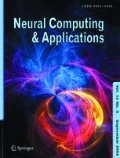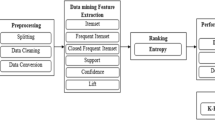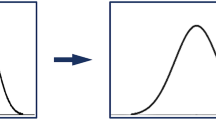Abstract
In order to improve the effect of college student performance prediction, based on machine learning and neural network algorithms, this paper improves the traditional data processing algorithms and proposes a similarity calculation method for courses. Moreover, this paper uses cosine similarity to calculate the similarity of courses. Simultaneously, this paper proposes an improved hybrid multi-weight improvement algorithm to improve the cold start problem that cannot be solved by traditional algorithms. In addition, this paper combines the neural network structure to construct a model framework structure, sets the functional modules according to actual needs, and analyzes and predicts students' personal performance through student portraits. Finally, this paper designs experiments to analyze the effectiveness of the model proposed in this paper. From the experimental data, it can be seen that the model proposed in this paper basically meets the expected requirements.












Similar content being viewed by others
References
Ayala HVH, dos Santos CL, Mariani VC et al (2015) An improved free search differential evolution algorithm: a case study on parameters identification of one diode equivalent circuit of a solar cell module[J]. Energy 93(1):1515–1522
Beigi AM, Maroosi A (2018) Parameter identification for solar cells and module using a hybrid firefly and pattern search algorithms[J]. Sol Energy 171(2):435–446
Benson NF, Kranzler JH, Floyd RG (2016) Examining the integrity of measurement of cognitive abilities in the prediction of achievement: comparisons and contrasts across variables from higher-order and bifactor models[J]. J Sch Psychol 58(3):1–19
Brehm M, Imberman SA, Lovenheim MF (2017) Achievement effects of individual performance incentives in a teacher merit pay tournament[J]. Labour Econ 44(5):133–150
Brown GTL, Hanna E (2018) Swedish student perceptions of achievement practices: the role of intelligence[J]. Intelligence 69(3):94–103
Chen ZL, Meng JM, Cao Y et al (2019) A high-speed search engine pLink 2 with systematic evaluation for proteome-scale identification of cross-linked peptides[J]. Nat Commun 10(1):1–12
Chen Z, Yuan X, Tian H et al (2014) Improved gravitational search algorithm for parameter identification of water turbine regulation system[J]. Energy Convers Manage 78(4):306–315
Dzeng RJ, Lin CT, Fang YC (2016) Using eye-tracker to compare search patterns between experienced and novice workers for site hazard identification[J]. Saf Sci 82(2):56–67
Gotmare A, Patidar R, George NV (2015) Nonlinear system identification using a cuckoo search optimized adaptive Hammerstein model[J]. Expert Syst Appl 42(5):2538–2546
Kelly BS, Rainford LA, Darcy SP et al (2016) The development of expertise in radiology: in chest radiograph interpretation, “expert” search pattern may predate “expert” levels of diagnostic accuracy for pneumothorax identification[J]. Radiology 280(1):252–260
Kertesz-Farkas A, Keich U, Noble WS (2015) Tandem mass spectrum identification via cascaded search[J]. J Proteome Res 14(8):3027–3038
Klusmann U, Richter D, Lüdtke Oliver (2016) Teachers’ emotional exhaustion is negatively related to students’ achievement: evidence from a large-scale assessment study [J]. J Edu Psychol 108(8):1193–1203
Koulayev S (2014) Search for differentiated products: identification and estimation[J]. Rand J Econ 45(3):553–575
Marsh HW, Abduljabbar AS, Parker PD et al (2015) The internal/external frame of reference model of self-concept and achievement relations: age-cohort and cross-cultural differences[J]. Am Educ Res J 52(1):168–202
Mcgill RJ, Spurgin AR (2016) ASSESSING THE INCREMENTAL VALUE OF KABC-II LURIA MODEL SCORES IN PREDICTING ACHIEVEMENT: WHAT DO THEY TELL US BEYOND THE MPI?[J]. Psychol Sch 53(7):677–689
Mohoric T, Taksic V (2016) Emotional understanding as a predictor of socio-emotional functioning and school achievement in adolescence[J]. Psihologija 49(4):357–374
Patwardhan AP, Patidar R, George NV (2014) On a cuckoo search optimization approach towards feedback system identification[J]. Digital Signal Process 32(3):156–163
Pinxten M, Soom CV, Peeters CM et al (2019) At-risk at the gate: prediction of study success of first-year science and engineering students in an open-admission university in Flanders—any incremental validity of study strategies?[J]. Eur J Psychol Edu 34(1):45–66
Rabiner DL, Godwin J, Dodge KA (2016) Predicting academic achievement and attainment: the contribution of early academic skills, attention difficulties, and social competence[J]. Sch Psychol Rev 45(2):250–267
Varley JB, Miglio A, Ha VA et al (2017) High-throughput design of non-oxide p-type transparent conducting materials: data mining, search strategy, and identification of boron phosphide[J]. Chem Mater 29(6):2568–2573
Zhu X, Wu B, Huang D et al (2017) Fast open-world person re-identification[J]. IEEE Trans Image Process 27(5):2286–2300
Zimmerman Barry J, Kitsantas Anastasia (2014) Comparing students’ self-discipline and self-regulation measures and their prediction of academic achievement[J]. Contemp Edu Psychol 39(2):145–155
Author information
Authors and Affiliations
Corresponding author
Ethics declarations
Conflict of interest
The authors have no competing interests.
Additional information
Publisher's Note
Springer Nature remains neutral with regard to jurisdictional claims in published maps and institutional affiliations.
Rights and permissions
About this article
Cite this article
Su, Y., Wang, S. & Li, Y. Research on the improvement effect of machine learning and neural network algorithms on the prediction of learning achievement. Neural Comput & Applic 34, 9369–9383 (2022). https://doi.org/10.1007/s00521-021-06333-8
Received:
Accepted:
Published:
Issue Date:
DOI: https://doi.org/10.1007/s00521-021-06333-8




